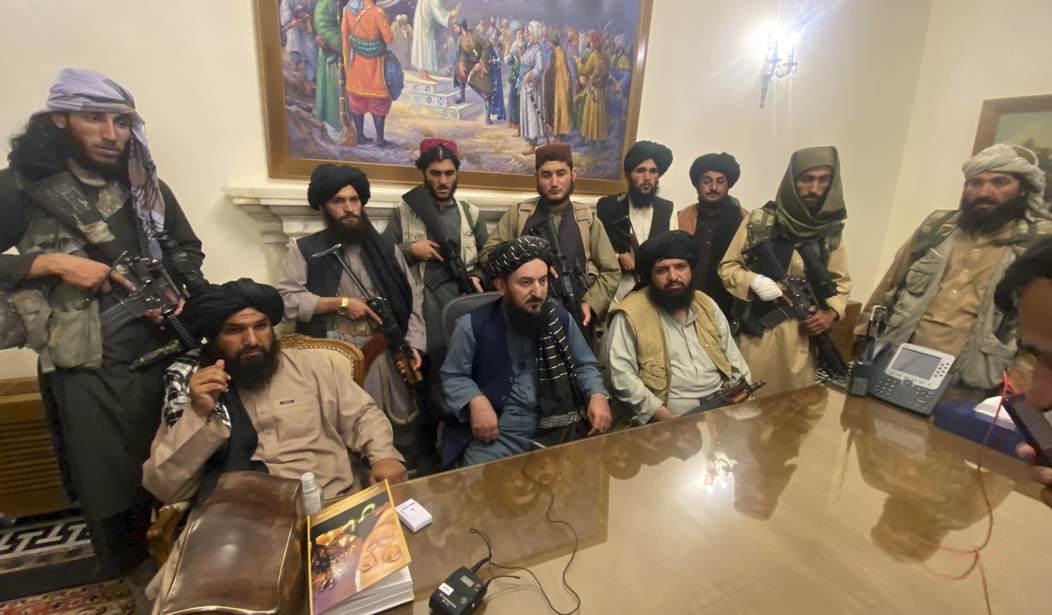The finger-pointing is already well underway. Who lost Afghanistan? Well, there is plenty of blame to go around, from the Pentagon to the State Department to the White House under both parties. The only people who look good in retrospect are our brave servicemen and servicewomen who fought so gallantly in a far-away and hostile land.
But the root cause of our failure was a uniquely American combination of hubris, idealism, and naivete. In particular, the policy elites in charge of our occupation of Afghanistan indulged themselves in the fantasy that we could somehow radically transform Afghan society in our own image. They never understood that most Afghans had no desire for their country to become America-on-the-Amu-Darya.
Those illusions were shattered as the Taliban conquered the entire country in a week-long campaign, despite 20 years of American efforts to stand up a functioning government and a capable army. Seven years ago I predicted a rapid collapse as soon as our troops left, and explained why Afghanistan was always a lost cause. The short version is simple: the government we backed was rotten to the core with corruption, and “elections” never conferred on this gang of thieves true legitimacy in the eyes of the people. And in the end, nobody was willing to fight and die for an incompetent and corrupt puppet government.
We should be glad the war ended so quickly. If the war had ground on for another year, the inevitable Taliban victory would simply have been deferred to next August, but at the cost of more bloodshed. And the Taliban would have had more reason to seek retribution and less reason to offer conciliation.
Recommended
So now the important question is, what do we do? Morally, we can’t simply abandon the Afghan people. We spent on average $100 billion a year on our failed Afghan project. We can surely afford to spend $5 billion a year in the near-term future on humanitarian aid such as food and medicine. We can’t decry the curtailment of women’s rights under the Taliban while allowing those same women and their families to die from lack of food and medicine.
We also can’t just ignore the new Taliban government. One of our key mistakes at the beginning of the occupation was to exclude moderate elements of the defeated Taliban from the political process. Like it or not, the Taliban are an indigenous movement with significant domestic support. And like it or not, they are now the ruling government of Afghanistan.
The Taliban subscribe to a deeply fundamentalist Islamist perspective on government and society. They do not share our values. But that does not make them irrational or incapable of political negotiation. The Soviets also rejected our way of life, but we still managed to employ statecraft to reach agreement where it was mutually beneficial.
We don’t have a lot of leverage over the Taliban. But we do have some things they want. They would prefer to be recognized as the legitimate government of Afghanistan. They would prefer to get international loans and development grants. We can use these limited bargaining chips to gain limited concessions, for example protection of minority rights. Something is usually better than nothing.
Afghanistan in 2021 is not the same Afghanistan the Taliban first conquered in 1996. Despite the many failures, our involvement there was not entirely in vain. There are paved roads and hospitals that didn’t exist 20 years ago. Afghanistan has been electrified. Afghans are more aware of life in the rest of the world, and have higher expectations of their government. And the Taliban realize they cannot just destroy all of this material and social progress.
Afghans also have a greater sense of their own rights. The Taliban cannot rule with the same cruelty and severity as they did a generation ago. A new generation of Afghans will require the Taliban to rule with some degree of moderation. There’s no going all the way back to 2001. Partially, yes, but not completely.
What are our real national interests in Afghanistan? In two words, peace and security. We need the Taliban to understand that in no circumstances can Afghanistan become a refuge for terrorists. That non-negotiable demand can be made clear by an occasional B-52 flyover over Kabul. Beyond that, we don’t want to see a flood of refugees fleeing oppression and poverty, and we don’t want violence spilling over Afghanistan’s borders. We can best protect our core interests by staying actively involved.
We can and should carefully analyze the causes of our failures in Afghanistan, in order to avoid similar calamities in the future. But we also need to begin immediately the job of managing the fallout of the fall of Kabul. The sooner we engage diplomatically and politically with the new government, the better the chances we can avoid new future catastrophes, and perhaps ensure that some of our positive accomplishments in Afghanistan endure.

























Join the conversation as a VIP Member